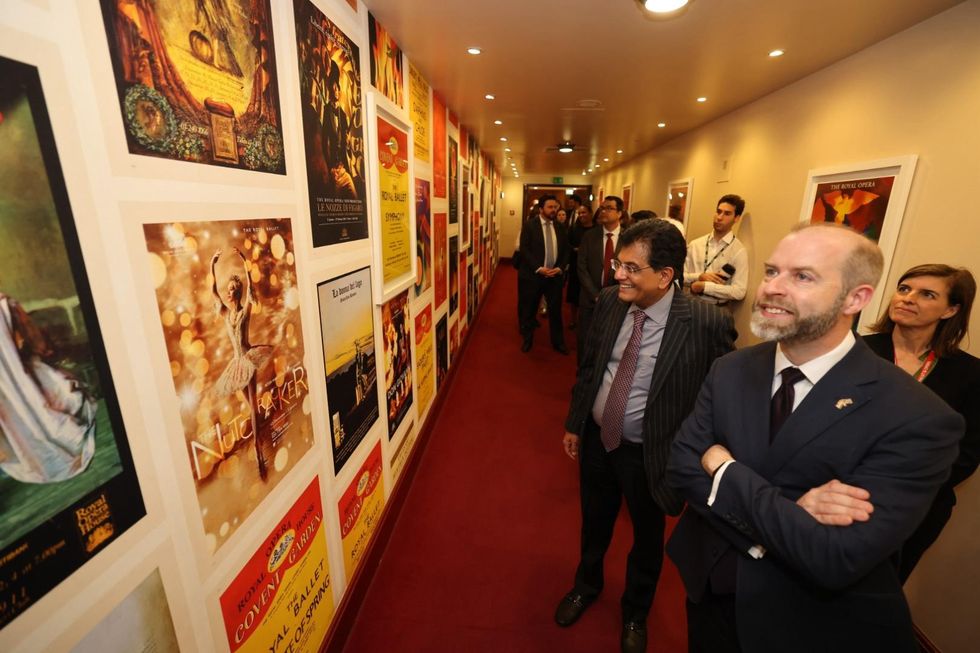by NADEEM BADSHAH
IN CONTRAST ARABIC AND SPANISH GROW IN POPULARITY IN THE CLASSROOM
FEWER pupils are choosing Urdu as a GCSE subject, with some opting to learn Arabic instead, according to research.
A total of 3,798 children studied Urdu in 2017 compared to 4,005 the previous year. And the number selecting Arabic has risen steadily from 2,138 in 2011 to 3,576 last year with many Muslim teenagers learning the language in order to study the Holy Quran.
The British Council report on languages also found students at Sikh faith schools favour French partly due to Brexit. And Newham, east London, had the highest takeup for studying languages at GCSE level.
Four per cent of state schools and two per cent of independent institutions now offer Urdu at GCSE. Researchers also found Muslim, Jewish and Sikh faith schools had a higher proportion of pupils learning Arabic, Chinese, Italian, Polish and Urdu.
On the decline of Urdu at GCSE level over the past three years, the report’s author Teresa Tinsley told Eastern Eye: “We are seeing a growth in the languages of more recent immigrant communities, such as Polish, but a decline in most of the Indian subcontinent languages, I think because they represent earlier waves of immigration to the UK.
“The second reason – specifically relating to Urdu – may be linked to the growth of Arabic.
“From anecdotal feedback I’ve heard, I suggest it may be that a greater consciousness and appreciation of Muslim identity may be leading pupils and families towards prioritising Arabic over Urdu.
“I have visited a number of schools which teach Arabic and have picked up on this, though it may be a biased opinion.”
The study said Spanish will become the most widely-taught language in England within a decade.
The subject is rapidly growing in popularity in secondary schools and is set to overtake French by 2025.
This summer, GCSE entries for Spanish rose by eight per cent to 91,980, while those for French dropped by one per cent to 120,605 and German rose by three per cent to 43,260.
Four per cent of state schools now offer Arabic at GCSE compared to five per cent of independent schools.
Mohamed Omer, a spokesman for the Muslim Council of Britain and chairman of a state secondary school, believes youngsters are learning Arabic to learn more about Islam.
He told Eastern Eye: “I am not surprised as people, especially the Muslim community, find that Arabic has more uses for them.
“Not only will they be able to learn the language of the Quran but also it is a marketable skill.
“People in faith schools are always keen to learn more about other people’s cultures and religions.
“But state schools do not encourage modern languages.
“As a chair of a state secondary school, modern languages do not have much take and also recruiting the right calibre of teachers is a challenge.”
The latest employer survey by the Confederation of British Industry shows a rising demand for people who speak European languages.
Experts say having a workforce who are not bilingual limits the capacity of companies to expand and export products when Britain leaves the EU next year.
Harmander Singh, a spokesman for the Sikhs in England thinktank, believes Sikh pupils are taking up French due to Brexit.
He said: “A lot of gurdwaras already teach Punjabi in evening classes, so there’s no need for faith schools to teach ancestral languages.
“When we have Brexited from Europe, the alternative international language appears to be French.”

















 Piyush Goyal and Jonathan Reynolds tour the Royal Opera House in London
Piyush Goyal and Jonathan Reynolds tour the Royal Opera House in London
